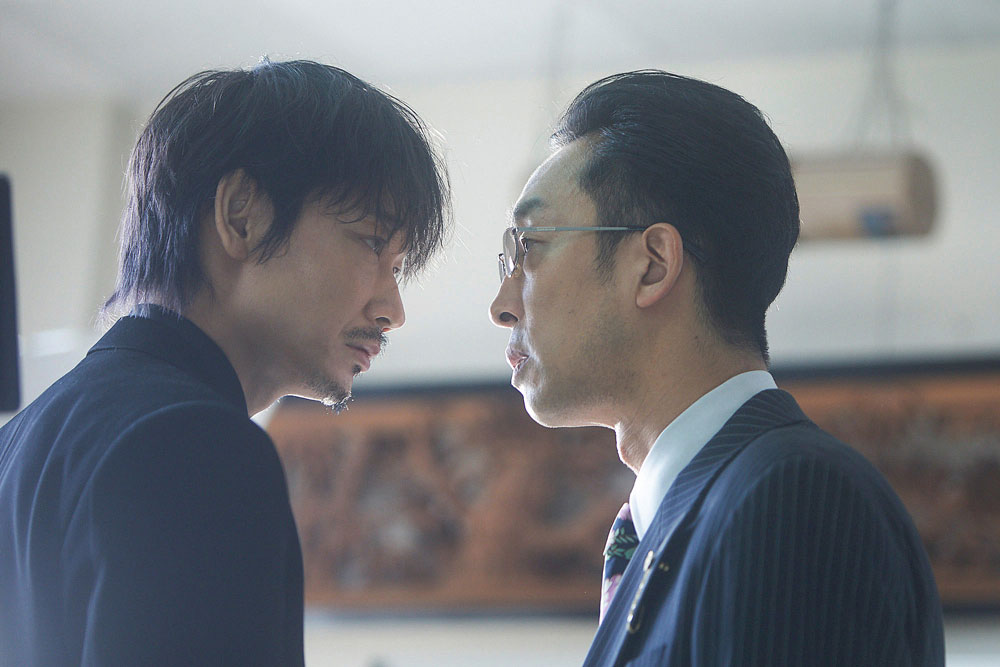![The beliefs and aesthetic sense packed into “Yakuza and the Family.” And the dream of challenging A24 - Director Michito Fujii talks about the past, present and future [Director's Interview Vol.104]](https://cinemore.jp/images/f539392c8bfb90abd68000f6564dd460265104f11dce45df514534ab312d9fda.jpg)
The beliefs and aesthetic sense packed into “Yakuza and the Family.” And the dream of challenging A24 - Director Michito Fujii talks about the past, present and future [Director's Interview Vol.104]
Michihito Fujii, a young and talented director who is leading the Japanese film industry, has created a masterpiece. The film is called "The Yakuza and the Family" (released on January 29th). It is a reunion with Star Sands, the film distribution and production company with which he worked on " The Journalist " (2019).
The story is set in three different time periods: 1999, 2005, and 2019. A lonely young man, Yamamoto (Ayano Go), is given a place to live by the boss of a yakuza gang, Shibasaki (Tachi Hiroshi), but he experiences the rise and fall of the yakuza throughout his life. How will he "live" after witnessing the "family" that accepted him lose their place in society, the times, and the law?
CINEMORE has had a lot of attention on Director Fujii in the past, including his appearance at a talk event to discuss the appeal of A24 , a conversation with Trey Edward Shults, director of " WAVES " (2019), and the interview series " CINEMORE ACADEMY " in which he served as a "lecturer" on filmmaking.
This time, we will take a closer look at the background to the film's production, how Director Fujii's sensibility has been cultivated, and where he is aiming for in the future after this film. We will be digging into the "three eras" of his own past, present, and future.
Index
- A session with Mitsutsune Kawamura that began immediately after "The Journalist"
- The starting point was "portraying human hearts and emotions"
- The story is about the Yakuza, but it's also "our story."
- What was the background behind the creation of "A Tale of Three Generations"?
- Commitment to the imagery of the video. Aiming for "something everyone can enjoy"
- There is still a lot of meaningless suffering in the industry
- I want to do a movie with A24 one day.
A session with Mitsutsune Kawamura that began immediately after "The Journalist"
Q: "The Yakuza and the Family" was an incredibly powerful work.
Fujii: Thank you!
Q: As you discussed the topic with Kawamura Mitsutsune (planning, production, and executive producer), how did you come up with the theme of "yakuza"?
Fujii: I finished filming "The Journalist" in December 2018, but Kawamura called me on January 2nd of the following year and asked me, "What should we do next?" Even though editing of "The Journalist" hadn't even finished yet (laughs).
On the spot, Kawamura-san came up with a number of plans, saying, "There's this original story, and I want to do this, but I also want to do this," and I, not wanting to be outdone, offered, "No, I want to do this too." Because if I didn't offer this up, I might end up doing something like "The Journalist 2" again (laughs).
What I was particular about was that it had to be original. During the brainstorming session, the keyword "Yakuza" came up naturally. This movie started from a casual conversation over coffee.

(c)2021 “Yakuza and the Family” Production Committee
Q: Looking at Star-Sands' previous works, it seems very fitting that he would arrive at the idea of the Yakuza as "a group that seems to be outcasts from society, but is actually closely connected to it." What kind of image did Director Fujii have of the Yakuza?
Fujii: I grew up in Nakano, Tokyo, close to Shinjuku, so I felt its presence from an early age. At the same time, I was unconsciously aware of the changes in the yakuza. When a lot of semi-gangsters appeared in Tokyo, I wondered why, and found out that the reason behind this was the weakening of the organizations due to the Bōtaihō (Anti-Organized Crime Law)...
I've always been interested in such things, so I also depicted the yakuza in my 2012 work, " A Better Future for Smoky Town ."
I became even more aware of this when I watched Young Yakuza (2008) directed by Jean-Pierre Limosin. It is a documentary that follows the boss of the Kumagai-gumi gang, and it really made an impact on me. There is a scene in the film where the boss asks a young man, "There was a time when we were known as the 'night guards,' but what do you think of us now?"
Although watching it didn't really allow me to get to know them in any real way, it's true that I found them somehow cool.
The starting point was "portraying human hearts and emotions"

